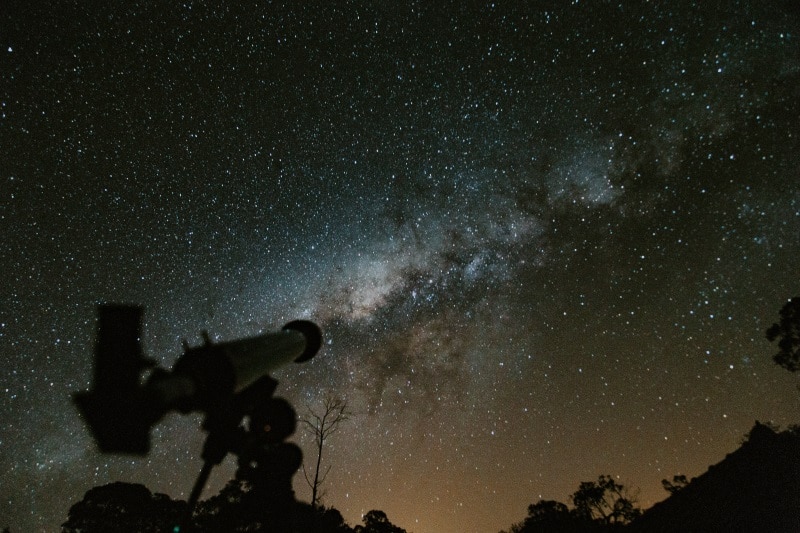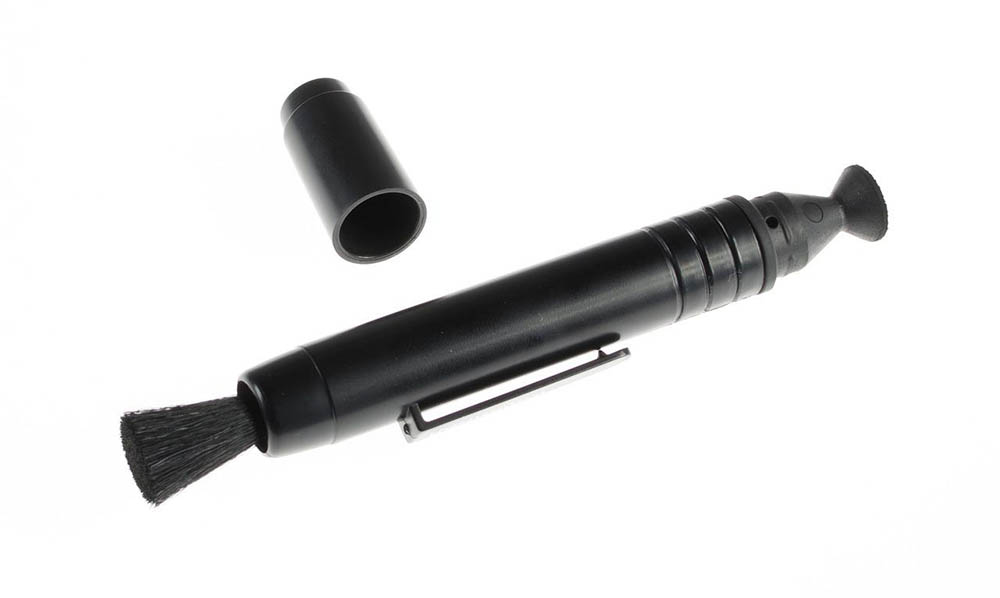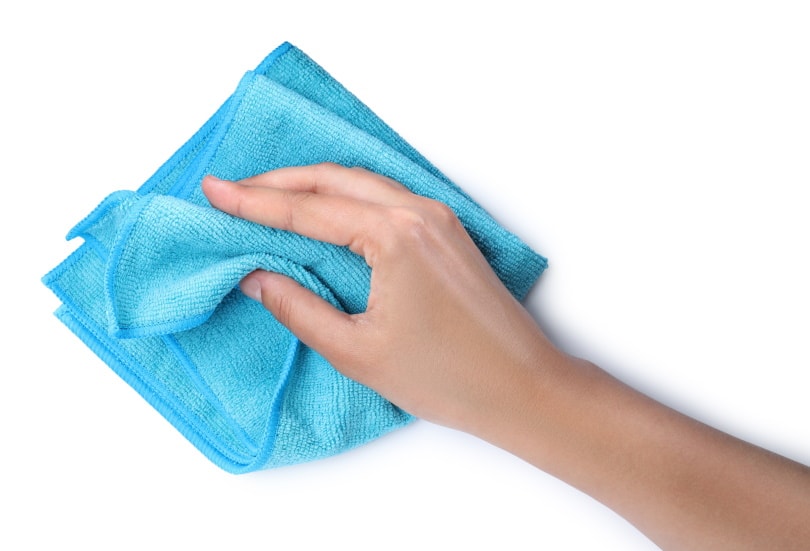How to Clean Your Telescope (5 Simple Steps)
Last Updated on

Your telescope is a fixture, and like any fixture in your house, office, or lab, it’s going to collect dust. This is doubly true if you bring your scope onto hilltops and fields to see the wide-open night skies. But you love your telescope. And keeping it in top shape means keeping it clean, so we’ve created a guide to help you learn proper cleaning technique.

How to Clean Your Telescope
There’s a correct way to clean your telescope, and we’ve outlined the 5 steps you should follow to protect your device and get it looking like new. Keep in mind that these steps are meant for a refractor telescope.
1. Remove loose dirt

A manual blowing device or camel hair brush are the best tools to achieve this. Simply brush or blow the dust from the surface until any visible particles are gone. Keep in mind that if you blow on the lens with your mouth, you risk trapping dust particulates in the moisture from your breath, which will end up scraping the lens. Compressed air isn’t great, either, as the chemicals can erode the lens coatings.
Pro Tip
Most lens cleaning kits come with a squeeze blower and a gentle camel hairbrush, both of which you can use to remove surface dust while protecting your lenses. But it’s important to look for a kit that’s for “sensitive electronics”. Any old lens cleaning kit won’t do.
2. Wash the lens
Using a lens-safe solution (usually contained in the kits described above) and a cotton swab, gently wash the lens surface in a circular motion until the entire surface is covered. Never use window or eyeglass cleaners on your lens; they will wear down your lens coating.
3. Use a soft, microfiber cloth for drying

Use a clean cloth and store it in a zippered plastic bag when you’re done to keep it dust-free until your next cleaning. Never use fibrous paper cloths to clean your lenses, such as paper towels, facial tissues, or toilet paper. The fibers left behind will damage the glass.
4. Use the blower again to blast any dust off the telescope’s body
Then use a damp cloth to wipe it down, being careful to avoid the lenses. Avoid using soaps or abrasive cleaners, as they can damage the telescope’s casing.
5. Store your telescope carefully
Remove your lenses and filters and place them in their cases or zippered plastic bags to keep them clean. Throw a clean cover over your telescope when it’s not in use to keep the dust off and try to keep it from baking in the sun by a window.

Dos & Don'ts of Cleaning Your Telescope

When to Seek Professional Help
Taking your telescope apart should always be left for a professional. Don’t attempt to clean inside, or you could end up ruining the device entirely. Try contacting the manufacturer if you feel your device needs a deeper cleaning than you can give it. Remember, you’ve made a sound investment in your telescope, so keep it clean, keep it protected, and it will perform well for years.
Related posts:
Header image credit: Lucas Pezeta, Pexels
About the Author Robert Sparks
Robert’s obsession with all things optical started early in life, when his optician father would bring home prototypes for Robert to play with. Nowadays, Robert is dedicated to helping others find the right optics for their needs. His hobbies include astronomy, astrophysics, and model building. Originally from Newark, NJ, he resides in Santa Fe, New Mexico, where the nighttime skies are filled with glittering stars.
Related Articles:
How to Clean a Refractor Telescope: Step-by-Step Guide
How to Clean a Telescope Eyepiece: Step-by-Step Guide
How to Clean a Rifle Scope: 8 Expert Tips
Monocular vs Telescope: Differences Explained (With Pictures)
What Is a Monocular Used For? 8 Common Functions
How to Clean a Telescope Mirror: 8 Expert Tips
Brightfield vs Phase Contrast Microscopy: The Differences Explained
SkyCamHD Drone Review: Pros, Cons, FAQ, & Verdict
